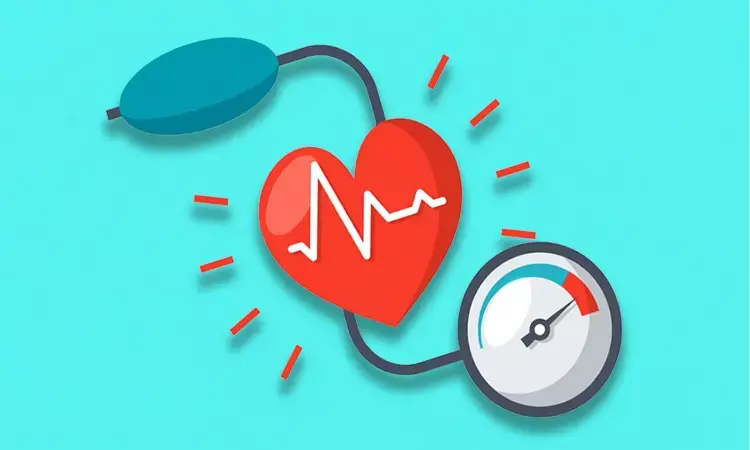- Home
- Medical news & Guidelines
- Anesthesiology
- Cardiology and CTVS
- Critical Care
- Dentistry
- Dermatology
- Diabetes and Endocrinology
- ENT
- Gastroenterology
- Medicine
- Nephrology
- Neurology
- Obstretics-Gynaecology
- Oncology
- Ophthalmology
- Orthopaedics
- Pediatrics-Neonatology
- Psychiatry
- Pulmonology
- Radiology
- Surgery
- Urology
- Laboratory Medicine
- Diet
- Nursing
- Paramedical
- Physiotherapy
- Health news
- Fact Check
- Bone Health Fact Check
- Brain Health Fact Check
- Cancer Related Fact Check
- Child Care Fact Check
- Dental and oral health fact check
- Diabetes and metabolic health fact check
- Diet and Nutrition Fact Check
- Eye and ENT Care Fact Check
- Fitness fact check
- Gut health fact check
- Heart health fact check
- Kidney health fact check
- Medical education fact check
- Men's health fact check
- Respiratory fact check
- Skin and hair care fact check
- Vaccine and Immunization fact check
- Women's health fact check
- AYUSH
- State News
- Andaman and Nicobar Islands
- Andhra Pradesh
- Arunachal Pradesh
- Assam
- Bihar
- Chandigarh
- Chattisgarh
- Dadra and Nagar Haveli
- Daman and Diu
- Delhi
- Goa
- Gujarat
- Haryana
- Himachal Pradesh
- Jammu & Kashmir
- Jharkhand
- Karnataka
- Kerala
- Ladakh
- Lakshadweep
- Madhya Pradesh
- Maharashtra
- Manipur
- Meghalaya
- Mizoram
- Nagaland
- Odisha
- Puducherry
- Punjab
- Rajasthan
- Sikkim
- Tamil Nadu
- Telangana
- Tripura
- Uttar Pradesh
- Uttrakhand
- West Bengal
- Medical Education
- Industry
Optimal blood pressure maintenances delays ageing of brain: Study

People with elevated blood pressure that falls within the normal recommended range are at risk of accelerated brain ageing, according to new research from The Australian National University (ANU).
The research also found optimal blood pressure helps our brains stay at least six months younger than our actual age. The researchers are now calling for national health guidelines to be updated to reflect their important findings.
The ANU study, published in Frontiers in Aging Neuroscience, found participants with high blood pressure had older and therefore less healthy brains, increasing their risk of heart disease, stroke and dementia.
Participants with an elevated blood pressure, but within the normal range, also had older looking brains and were at risk of health problems.
"This thinking that one's brain becomes unhealthy because of high blood pressure later in life is not completely true," Professor Nicolas Cherbuin, Head of the ANU Centre for Research on Ageing, Health and Wellbeing, said.
"It starts earlier and it starts in people who have normal blood pressure."
Normal blood pressure is defined by pressure below 120/80, whereas an optimal and healthier blood pressure is closer to 110/70.
The new research comes after a large international study found the number of people over 30 with high blood pressure has doubled globally.
Cardiologist and co-author of the study, Professor Walter Abhayaratna, said if we maintain optimal blood pressure our brains will remain younger and healthier as we age.
"It's important we introduce lifestyle and diet changes early on in life to prevent our blood pressure from rising too much, rather than waiting for it to become a problem," he said.
"Compared to a person with a high blood pressure of 135/85, someone with an optimal reading of 110/70 was found to have a brain age that appears more than six months younger by the time they reach middle age."
The ANU team, in collaboration with colleagues in Australia, New Zealand and Germany, examined more than 2,000 brain scans of 686 healthy individuals aged 44 to 76.
The blood pressure of the participants was measured up to four times across a 12-year period. The brain scan and blood pressure data was used to determine a person's brain age, which is a measure of brain health.
Lead author, Professor Cherbuin, said the findings highlight a particular concern for young people aged in their 20s and 30s because it takes time for the effects of increased blood pressure to impact the brain.
"By detecting the impact of increased blood pressure on the brain health of people in their 40s and older, we have to assume the effects of elevated blood pressure must build up over many years and could start in their 20s. This means that a young person's brain is already vulnerable," he said.
Professor Abhayaratna said the research findings show the need for everyone, including young people, to check their blood pressure regularly.
"Australian adults should take the opportunity to check their blood pressure at least once a year when they see their GP, with an aim to ensure that their target blood pressure is closer to 110/70, particularly in younger and middle age groups," he said.
"If your blood pressure levels are elevated, you should take the opportunity to speak with your GP about ways to reduce your blood pressure, including the modification of lifestyle factors such as diet and physical activity."
https://www.frontiersin.org/articles/10.3389/fnagi.2021.694982/full
Hina Zahid Joined Medical Dialogue in 2017 with a passion to work as a Reporter. She coordinates with various national and international journals and association and covers all the stories related to Medical guidelines, Medical Journals, rare medical surgeries as well as all the updates in the medical field. Email: editorial@medicaldialogues.in. Contact no. 011-43720751
Dr Kamal Kant Kohli-MBBS, DTCD- a chest specialist with more than 30 years of practice and a flair for writing clinical articles, Dr Kamal Kant Kohli joined Medical Dialogues as a Chief Editor of Medical News. Besides writing articles, as an editor, he proofreads and verifies all the medical content published on Medical Dialogues including those coming from journals, studies,medical conferences,guidelines etc. Email: drkohli@medicaldialogues.in. Contact no. 011-43720751


